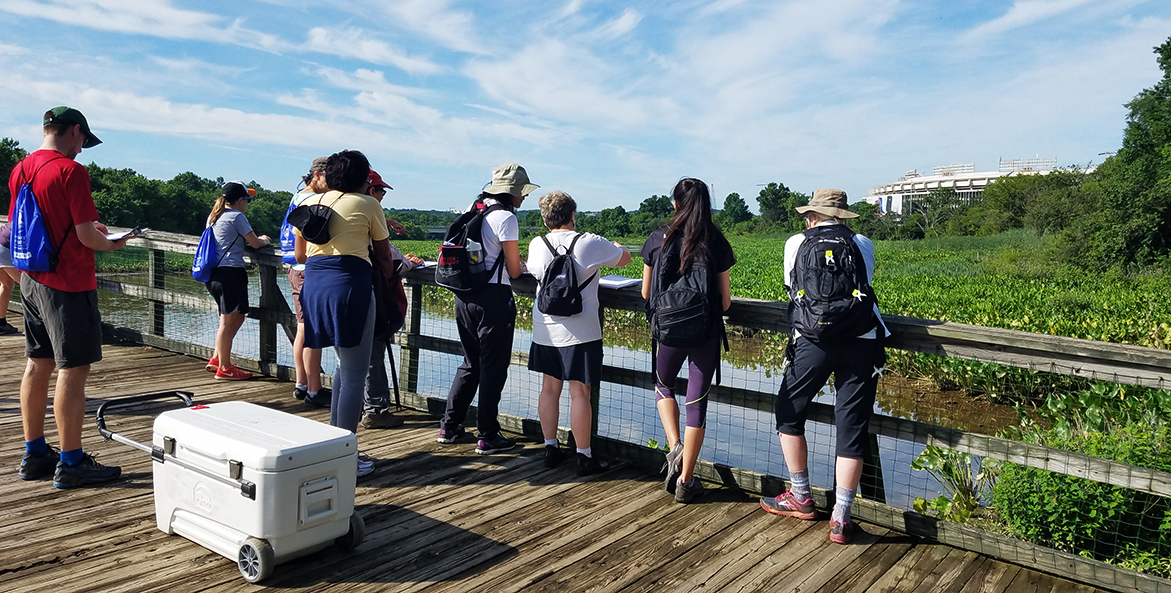Cities may have a disproportionate effect on the health of the Chesapeake Bay, notes CBF educator Alexis Dickerson. But that also means they offer more opportunities for teaching important lessons about how to save it.
Helping teachers in three cities across the watershed seize those opportunities is the goal of a new course on urban watersheds Dickerson and fellow educator Claire Cambardella created and are debuting next month.
"Exploring Our Urban Watersheds" is a hybrid course for public school teachers in Baltimore, Richmond, and the District of Columbia. CBF will conduct the course online and in person in each city from July 19 through July 23.
The course will combine getting teachers outside to explore the unique characteristics of their respective cities' environments with coming together online to reflect on what they learned and how they can apply that in the classroom to inspire their students to act. Teachers will do some outdoor activities independently and others with fellow teachers in their city cohort.
"Cities are facing similar challenges," Dickerson says. "So we created a core structure where there's an opportunity for teachers from different cities to talk to each other about the similar challenges that exist in cities, and share their approaches and ideas about how to tackle those challenges with their students."
Those challenges, which affect both the environment and human health, include combined sewer overflows, stormwater management, and aging water treatment infrastructure, as well as environmental injustices such as heat islands, lack of green space, and the systemic racism that has led low-income communities and communities of color to be fractured by interstate highways and cut off from access to healthy food.
Polluted runoff from cities and suburban areas is a significant source of harmful nitrogen pollution that continues to grow in the Chesapeake Bay watershed. As rainwater runs off our streets, parking lots, lawns, and other surfaces, it carries fertilizers, pesticides, oil, and other contaminants into local creeks, rivers, and the Bay, adversely affecting water quality and aquatic life.
"Exploring Our Urban Watersheds" will build on the work CBF is already doing to help teachers and students in Baltimore, Harrisburg, Richmond, and the District of Columbia understand what is happening in their cities, including mapping combined sewer overflows in Richmond and investigating the heat island effect in cities across the watershed.
By focusing on the common environmental challenges these cities face, Cambardella hopes to make them more "front-of-mind" for teachers so they can better show their students that environmental issues are city issues.
The five-day course is part of CBF's Chesapeake Classrooms® professional development program. Chesapeake Classrooms focuses on giving teachers in Maryland, Pennsylvania, Virginia, and Washington, D.C., ways to incorporate environmental education into the core subject areas of math, science, reading, and social studies.
Registration for "Exploring Our Urban Watersheds" in all three cities is open and places are still available. Learn more.

Washington, D.C. Communications & Media Relations Manager, CBF
[email protected]
202-793-4485



